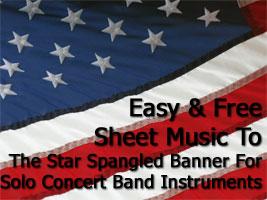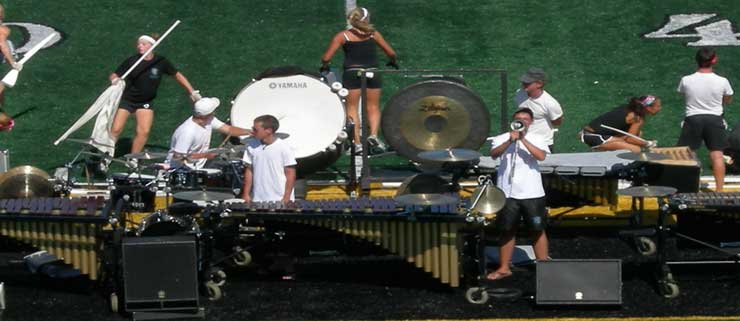 Much of the music permeating our modern culture had its roots in sounds from African ritual. These songs were part of the everyday lives of the negroes who were brought to the New World on the slave ships - and they were steeped in magic and voodoo.
Much of the music permeating our modern culture had its roots in sounds from African ritual. These songs were part of the everyday lives of the negroes who were brought to the New World on the slave ships - and they were steeped in magic and voodoo.
{mosimage}If we were to trace back to the original roots of the Blues, Gospel, R&B, Jazz and Rock’n’Roll in America, it would be around 1619 when the first twenty Negroes were sold into slavery from a ship arrived in Virginia. Thus began one of the ugliest eras of our history – and a harrowing experience for the original African-Americans. To keep their oral traditions alive and lift their spirits in the face of this immense suffering, they turned to the music that had been an integral part of their everyday lives in Africa – and which was, itself, steeped in magical ritual and voodoo.
In West Africa, the “professional” music-makers had been known as the Griol. They related the ancestral tales and served as the keepers of the tribes’ myths and history. Their function was much like that of the Medicine Men of the Native Americans. And like the Shamans of our own continent, their art was associated with magic and healing.
Because the slaves had brought nothing with them from their old world, they were obliged to draw on their own memory to re-create their music, and to utilize everyday items to craft new instruments. The banjo, for example, was modeled after a West African gourd guitar. The white men, with their guns and whips, had the power, so the slaves had to vent their anger and frustration in their music. Their songs found homes in churches, juke joints, downtown squares, and amongst prison gangs.
With the evolution of the Delta Blues, a sound inspired mainly by suffering and despair, the musicians found a lyrical formula to mirror the voodoo implications that had always lived within the music itself. Consider Robert Johnson, who recorded such songs as “Me and the Devil Blues” and “Hellhound on my Trail.” Johnson, who will always remain an enigma amongst music scholars, was himself influenced by older songs such as Skip James’s “Devil Got My Woman”. (Remember that one from Ghost World?)
Along with the songs went the classical delta blues myth: a midnight meeting with the Devil at an abandoned crossroads, selling your soul for musical greatness. If the white men of the time who kept these people in shackles worshipped God, is it any wonder that an artist like Johnson would have felt more “sympathy for the Devil”?
Which brings us to rock’n’roll, that ungodly sound that owed so much to the blues. To my knowledge, Jim Morrison was the first musician to describe rock’n’roll as a ritual with the audience playing the part of the tribe and the singer the Shaman (or “erotic politician”). Morrison often referred to a Doors concert as a séance, a coming together for the purpose of purging demons and raising spirits with the power of music. This is exactly what the original black musicians in America were attempting to do. It could be argued that they – and Morrison – succeeded.
Who else in rock’s pantheon has believed in music as a kind of incantatory magic? The list is legion, but I’ll provide a sketch. There’s Led Zeppelin guitarist Jimmy Page and his fascination with the magician Aleister Crowley. A favorite performer and dabbler in the occult of mine is Glenn Danzig. His forays into voodoo intensified with his second band Samhain and such songs as “Halloween”, with its refrain of “metamorphosis…lycanthropy”. Another song, entitled “The Shift”, was even more explicit, describing in detail the changes one undergoes whilst transforming into a werewolf. It’s a convincing first-person narrative, at that.
Black Sabbath has a song on their first album, “N.I.B”, which recounts a curious tale: Lucifer falling in love with a mortal woman. Another favorite of mine is an early Iron Maiden song called “Prodigal Son” which is a Faust-like story. The narrator is beseeching his love Lamia, telling her that he’s fooled around too long with mysticism and magic and now he fears for his soul.
Music does not, of course – nor should it – always reflect the darker underside of man’s nature. I think that it DOES to the extent that society tries to preserve an artificial sunny image. This is what the slaves rebelled against, as they were being portrayed in pictures as dancing joyfully to banjo music in the barn whilst the reality of their lives was much more appalling. And this is how kids nowadays rebel when they realize that what our society teaches them does not prepare them for life.
There has to be another answer, a way to access deeper passion and inspiration, and music has always provided us with one route to get there.
Seth Mullins is the author of "Song of an Untamed Land". Visit his complete blog at http://www.writingup.com/blog/seth_mullins
Article Source: http://EzineArticles.com/?expert=Seth_Mullins







 Scroll down to view the comparison chart of over a dozen different portable digital audio recorders.
Scroll down to view the comparison chart of over a dozen different portable digital audio recorders.